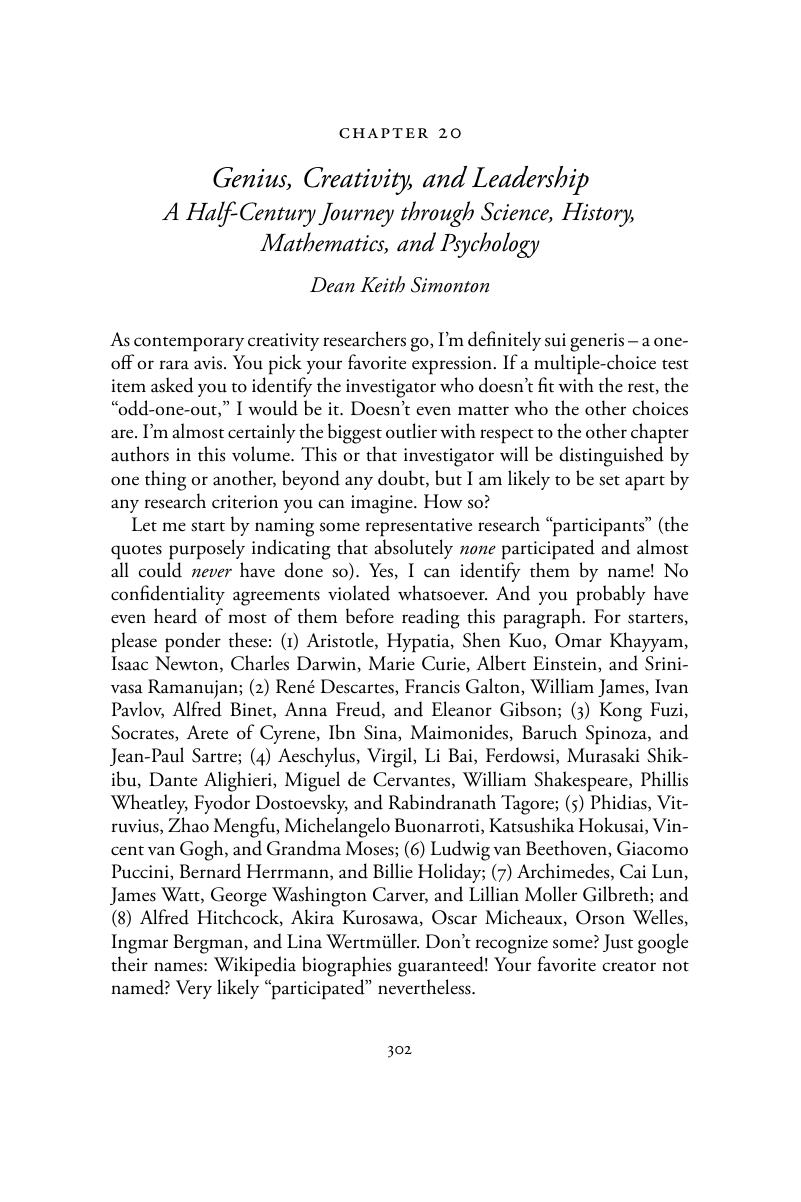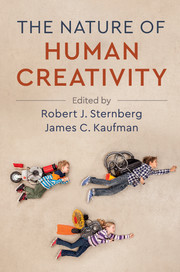Book contents
- The Nature of Human Creativity
- The Nature of Human Creativity
- Copyright page
- Contents
- Figures
- Tables
- Contributors
- Foreword
- Preface
- Chapter 1 Creativity and the Labor of Love
- Chapter 2 The Trouble with “Creativity”
- Chapter 3 Do We Choose Our Scholarly Paths or Do They Choose Us?
- Chapter 4 Bringing Creativity down to Earth
- Chapter 5 In Search of the Creative Personality
- Chapter 6 From Fascination to Research
- Chapter 7 Creativity
- Chapter 8 I Never Intended to Become a Research Psychologist
- Chapter 9 What Creativity Can Be, and What Creativity Can Do
- Chapter 10 Creativity across the Seven Cs
- Chapter 11 Creative Thinking in the Real World
- Chapter 12 It All Makes Sense Now That I Think about It
- Chapter 13 Creative Cognition at the Individual and Team Levels
- Chapter 14 The Malleability of Creativity
- Chapter 15 Everyday Creativity
- Chapter 16 Authentic Creativity
- Chapter 17 Pretend Play and Creativity
- Chapter 18 An Interdisciplinary Study of Group Creativity
- Chapter 19 Creativity is Undefinable, Controllable, and Everywhere
- Chapter 20 Genius, Creativity, and Leadership
- Chapter 21 The Triangle of Creativity
- Chapter 22 Creativity as a Continuum
- Chapter 23 Reflections on a Personal Journey Studying the Psychology of Creativity
- Afterword The Big Questions in the Field of Creativity
- Index
- References
Chapter 20 - Genius, Creativity, and Leadership
A Half-Century Journey through Science, History, Mathematics, and Psychology
Published online by Cambridge University Press: 01 May 2018
- The Nature of Human Creativity
- The Nature of Human Creativity
- Copyright page
- Contents
- Figures
- Tables
- Contributors
- Foreword
- Preface
- Chapter 1 Creativity and the Labor of Love
- Chapter 2 The Trouble with “Creativity”
- Chapter 3 Do We Choose Our Scholarly Paths or Do They Choose Us?
- Chapter 4 Bringing Creativity down to Earth
- Chapter 5 In Search of the Creative Personality
- Chapter 6 From Fascination to Research
- Chapter 7 Creativity
- Chapter 8 I Never Intended to Become a Research Psychologist
- Chapter 9 What Creativity Can Be, and What Creativity Can Do
- Chapter 10 Creativity across the Seven Cs
- Chapter 11 Creative Thinking in the Real World
- Chapter 12 It All Makes Sense Now That I Think about It
- Chapter 13 Creative Cognition at the Individual and Team Levels
- Chapter 14 The Malleability of Creativity
- Chapter 15 Everyday Creativity
- Chapter 16 Authentic Creativity
- Chapter 17 Pretend Play and Creativity
- Chapter 18 An Interdisciplinary Study of Group Creativity
- Chapter 19 Creativity is Undefinable, Controllable, and Everywhere
- Chapter 20 Genius, Creativity, and Leadership
- Chapter 21 The Triangle of Creativity
- Chapter 22 Creativity as a Continuum
- Chapter 23 Reflections on a Personal Journey Studying the Psychology of Creativity
- Afterword The Big Questions in the Field of Creativity
- Index
- References
Summary

- Type
- Chapter
- Information
- The Nature of Human Creativity , pp. 302 - 317Publisher: Cambridge University PressPrint publication year: 2018
References
- 2
- Cited by



